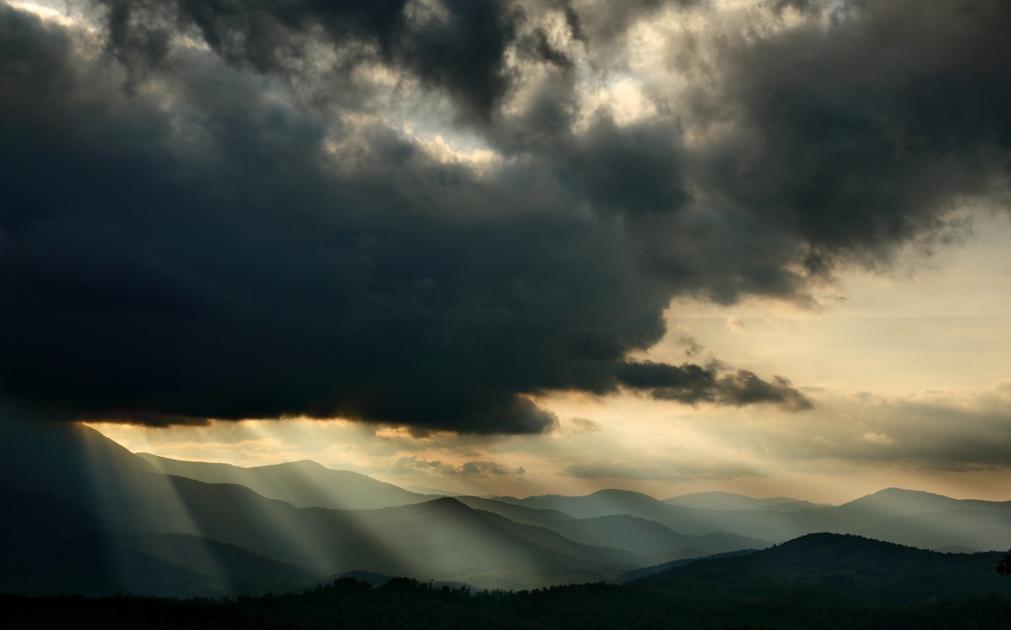Finding a New Religion of Meaning Facing Climate Change Despair With Hope, Optimism, and Faith
By John McIlwain

New York magazine recently published one of the grimmest accounts of the possible results of climate change. Unfortunately, it comes at the same time as news arrives of the long-anticipated “calving” from the Larsen C ice shelf in Antarctica, creating of one of the largest icebergs ever, a sad reminder of the startling changes being brought by the warming planet.
The New York article’s author, David Wallace-Wells, admits that his piece is not a prediction of what will occur—despite being based on dozens of interviews with scientists and reflecting hundreds of papers on climate change—but what will likely occur without aggressive action on climate change. In all likelihood, he says, humanity will act with sufficient decisiveness at some point in the future to avoid some of the worst-case scenarios. Rather, his point is that, “no matter how well-informed [we] are, [we] are surely not alarmed enough.”
The article has sparked a swirl of controversy. An endless string of follow-up comments are from angry climate deniers, though there are the occasional more thoughtful voices. As journalist David Roberts wrote in Vox the next day, “Two basic questions… have been raised: whether the article is accurate and whether it is ‘useful.’” He concludes that, “On both counts, the piece is on far more solid ground than its critics acknowledge.” While he notes a couple of errors, they are, he says, “by my rough calculation, about a fiftieth of the factual claims in DWW’s piece. The rest, as far as I know, stands.” Not bad for such a complex subject.
As to the question of usefulness, Roberts says this turns on whether you believe scare tactics spur people into productive efforts, or, instead, turn them away from the issue in despair and apathy. This is a familiar dilemma, explored at the Garrison Institute and elsewhere. People do need to be informed, accurately and fully, as the science develops and the catastrophes mount. At the same time, there is only so much anyone can absorb about a problem as large and seemingly intractable as climate change before they simply turn back to their day-to-day lives, hoping for the best.
There’s no one answer to a question like this; it depends on the person, the context, and the way in which the information is communicated. There does have to be enough awareness so the issue is taken seriously, but not so much as to cause people to despair. It’s important that people can find hope in the face of uncertainty about climate change.
But is hope alone a real motivator? Often it’s only an excuse for inaction, the hope that somehow, someone else will figure out how to save humanity. More is needed, a possible, positive future that, while not certain, is attainable; a vision for a future that we can all live into and work towards together. For a vision like this to capture the hearts of people, there need to be achievable, short term, manageable goals, and actions being taken towards them, that in total can lead to a desirable outcome. Project Drawdown has stepped into this void, and offers a guarded but thoughtful pathway forward; there are others as well.
In short, what is needed is balance, not scare tactics, and certainly not Pollyannaish statements such as the article ends with:
“And yet, improbably, Ward is an optimist. So are Broecker and Hansen and many of the other scientists I spoke to. We have not developed much of a religion of meaning around climate change that might comfort us, or give us purpose, in the face of possible annihilation. But climate scientists have a strange kind of faith: We will find a way to forestall radical warming, they say, because we must.”
Nice, but what does it mean that we will because we must? That sounds like a “Hail Mary” pass.
Instead, perhaps we should take DWW up on his suggestion and create a “religion of meaning around climate change,” not just so it will comfort us but so it will give us a purpose to act. There is much wisdom to draw on to move in this direction.
For instance, the Buddha teaches compassion for all living beings, and that we are profoundly interconnected with all existence. Furthermore, elders from indigenous communities around the world call on us to love Mother Earth as she loves us, to feel her healing touch in nature, and to seek to heal her in return. And there are deep teachings in Judaism, Christianity, Islam, Taoism, and other religions from which to draw.
Finding a faith in response to climate change—a faith built on new understandings, articulated in new metaphors, that can capture the minds, and more importantly, the hearts, of people everywhere—is long overdue. How do we find what is needed for this new religion of meaning so that we can remain balanced and proactive even when faced with the bleak reality of climate change?
John McIlwain is an advisor to the Garrison Institute’s Climate Mind and Behavior program.
Photos courtesy of Forest Wander on Flickr
This piece originally appeared on the Garrison Institute’s blog. The mission of the Garrison Institute is to demonstrate and disseminate the importance of contemplative practices and spiritually grounded values in building sustainable movements for a healthier, safer, and more compassionate world.

